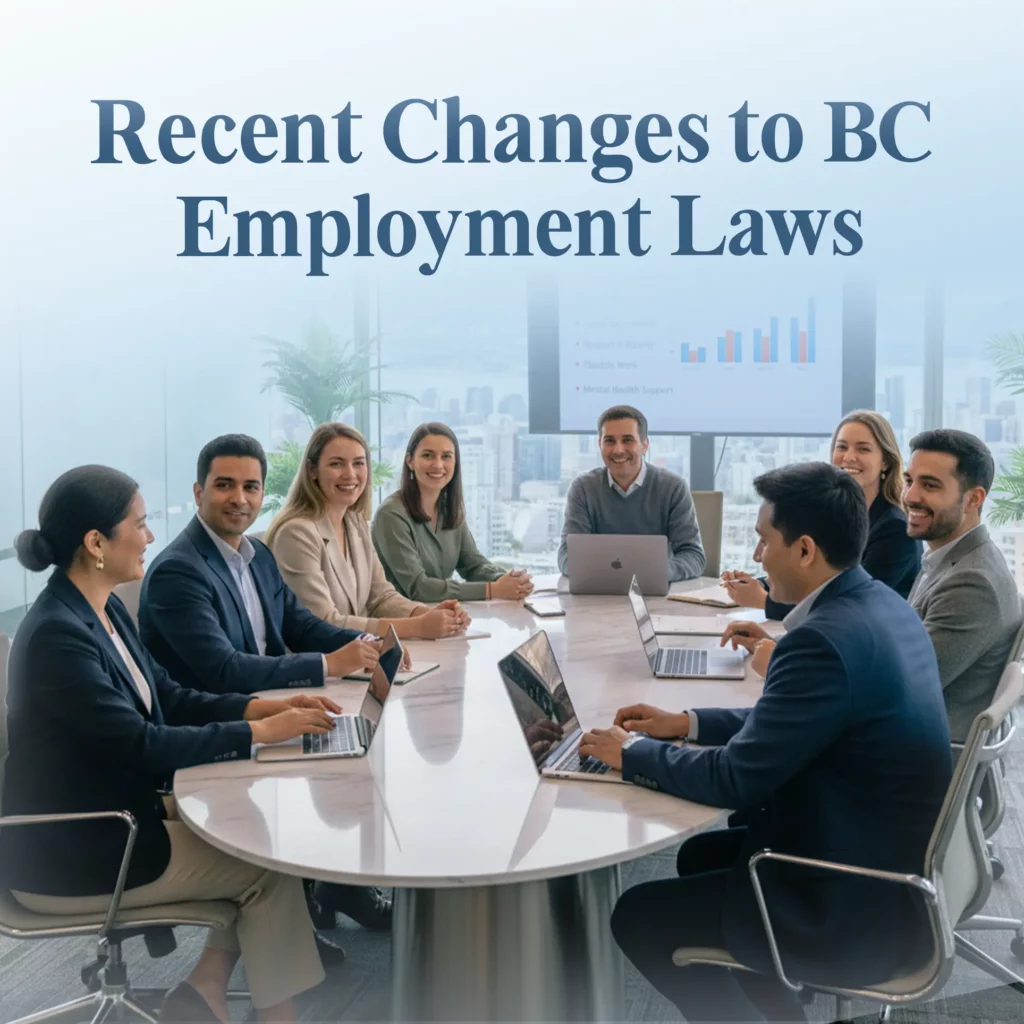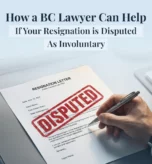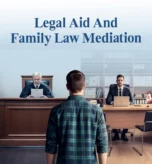Recent Changes to BC Employment Laws You Need to Know in 2025
Employment law in British Columbia continues to shift as the province adapts to rising economic demands, modern workplace trends, and stronger protections for workers’ rights. Employers and employees across Vancouver, Surrey, Abbotsford, Burnaby, and Richmond are directly impacted by these changes, making it essential to understand the latest legal requirements.
Failure to keep pace with these updates can result in costly disputes, government penalties, or lasting reputational harm. This overview highlights the most important 2025 employment law changes in BC and shows how both businesses and workers can safeguard their interests with support from Sorensen Truong LLP, a respected Fraser Valley law firm providing practical and client-focused legal solutions.
1. Minimum Wage Adjustments in British Columbia
Effective June 1, 2025, the provincial government increased BC’s minimum wage to $18.20 per hour, tying it directly to the rate of inflation. This ensures that wages keep pace with rising costs of living, particularly in Metro Vancouver and the Fraser Valley, where housing and transportation expenses continue to climb.
- Employers: Businesses must review their payroll systems, update contracts, and confirm compliance to avoid penalties from the Ministry of Labour.
- Employees: Workers should verify that their paychecks accurately reflect the new rates and raise concerns immediately if discrepancies are found.
Sorensen Truong LLP advises both employers and employees on wage-related disputes, helping clients resolve issues quickly and cost-effectively.
2. Expanded Paid Sick Leave Provisions
Building on the 2022 Employment Standards Act amendment, BC has increased mandatory paid sick leave to 10 days per calendar year, with no requirement for medical notes for absences up to three days.
This change supports worker well-being, especially for industries with high-contact roles such as retail, hospitality, and healthcare. Employers in Surrey, Langley, and Abbotsford must update their HR policies to ensure compliance.
Key takeaway: Employers should maintain accurate absence records, while employees must understand their entitlement to avoid unnecessary conflicts.
3. New Workplace Harassment and Bullying Standards
In 2025, WorkSafeBC introduced stricter workplace harassment regulations, requiring all businesses to:
- Develop a written anti-harassment policy
- Provide annual training for staff and managers
- Establish clear reporting procedures for complaints
Failure to comply can result in significant fines or orders from WorkSafeBC. For workplaces across Burnaby, Coquitlam, and Chilliwack, these requirements are now legally enforceable.
If disputes escalate, Sorensen Truong LLP provides representation in workplace investigations, ensuring both employers and employees navigate the process fairly.
4. Remote Work and Overtime Regulations
With hybrid and remote work now standard in many industries, BC has updated overtime rules. Employers must track hours for remote staff and ensure overtime is paid for work beyond 8 hours per day or 40 hours per week, regardless of work location.
Employers must also reimburse reasonable remote work expenses, including internet and equipment, if those costs are required for job performance.
For employees in Vancouver’s tech sector or Fraser Valley businesses with hybrid teams, this change clarifies rights and obligations in modern workplaces.
5. Employment Standards for Gig Workers
BC has taken a major step in protecting gig economy workers, particularly rideshare drivers and delivery couriers, by mandating:
- Minimum per-trip pay standards
- Access to workers’ compensation coverage
- Transparent deactivation policies
These laws, rolled out in January 2025, address long-standing concerns about income security and workplace protections for non-traditional workers.
Sorensen Truong LLP offers legal guidance to companies adapting to these changes and workers seeking clarity about their rights.
6. Enhanced Family and Caregiver Leave
To better support families, BC expanded caregiver leave entitlements:
- Up to 20 weeks of unpaid, job-protected leave to care for critically ill family members
- Extended parental leave benefits in alignment with federal Employment Insurance (EI) reforms
Employers in communities such as Richmond, Maple Ridge, and Mission must adjust policies to accommodate longer absences without penalizing workers.
7. Immigration and Foreign Worker Protections
Given BC’s reliance on temporary foreign workers in agriculture, construction, and hospitality, the province has strengthened protections in 2025. Employers must:
- Provide transparent contracts in the worker’s first language
- Avoid charging illegal recruitment fees
- Ensure safe housing standards where applicable
Legal disputes involving foreign worker exploitation are expected to rise as enforcement intensifies. Sorensen Truong LLP represents both employers and workers in navigating these complex issues.
Why the 2025 Changes Matter for Employers
Employers throughout British Columbia, whether small businesses in Abbotsford and Langley or larger corporations in Vancouver and Burnaby, must take these legislative updates seriously. The 2025 employment law reforms affect critical areas, such as minimum wage, paid sick leave, workplace harassment policies, and remote work regulations. Companies that fail to adjust employment contracts, payroll systems, and HR policies risk more than administrative challenges.
Non-compliance can trigger:
- Financial penalties issued by WorkSafeBC or the Ministry of Labour
- Employee grievances and wrongful dismissal claims filed through formal legal channels
- Reputational damage that can affect recruitment and client trust, particularly in competitive markets across the Lower Mainland and Fraser Valley
By proactively updating policies and seeking legal guidance, businesses can avoid costly disputes and demonstrate a commitment to fair and lawful workplace practices. Sorensen Truong LLP advises employers on compliance strategies, policy drafting, and dispute resolution to ensure organizations remain both legally compliant and operationally efficient.
Why the 2025 Changes Matter for Employees
For employees, the 2025 employment law updates in BC provide stronger workplace protections and fairer treatment. These reforms give workers in industries such as construction, healthcare, retail, hospitality, and technology expanded access to benefits like higher minimum wages, extended paid sick leave, enhanced caregiver rights, and clearer anti-harassment safeguards.
Understanding these rights is essential. Workers who are not informed may unknowingly accept underpayment, unlawful termination, or denial of entitled leave. The new rules also ensure gig workers and remote employees—two groups often overlooked in past legislation—now have clearer entitlements to fair pay and safe working conditions.
Employees who believe their rights are being overlooked can consult Sorensen Truong LLP, a Fraser Valley employment law firm that assists with wrongful dismissal claims, wage recovery, workplace investigations, and human rights complaints. Knowing the law not only empowers employees to protect themselves but also encourages healthier and more transparent workplaces across British Columbia.
Conclusion
The 2025 changes to BC employment laws mark a turning point for workplaces across Vancouver, Surrey, Abbotsford, Burnaby, Richmond, and the Fraser Valley. Updates such as minimum wage increases, expanded paid sick leave, stronger workplace harassment rules, remote work expense reimbursements, and new protections for gig economy workers are reshaping the responsibilities of employers and strengthening the rights of employees. Staying compliant requires employers to review policies, update employment contracts, and ensure HR practices reflect the latest Employment Standards Act and WorkSafeBC requirements.
For employees, these reforms provide greater protection against underpayment, wrongful termination, and denial of leave entitlements. Workers now have clearer legal avenues to challenge unfair practices and assert their workplace rights. To avoid disputes and costly penalties, both employers and employees can benefit from tailored legal guidance. Sorensen Truong LLP, a respected Fraser Valley law firm, offers trusted advice and representation to help businesses maintain compliance and support employees in protecting their rights under BC’s evolving employment framework.





